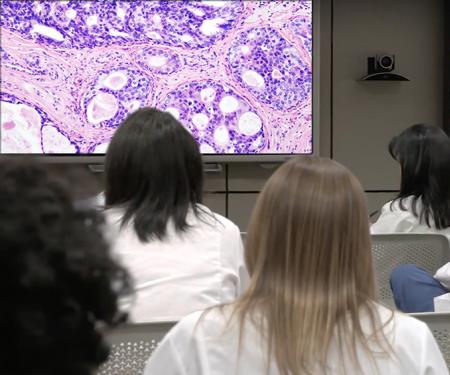
PHILADELPHIA (August 14, 2019) – Patients with head and neck cancer lived longer when their treatment was coordinated by a dedicated multidisciplinary tumor board, according to a new study by clinicians at Fox Chase Cancer Center at Temple University Hospital and the Departments of Radiation Oncology and Otolaryngology-Head and Neck Surgery at the Lewis Katz School of Medicine at Temple University.
“For decades everyone has understood that a multidisciplinary group of doctors and staff caring for patients with cancer has been best practice, but one thing was not clear: if the added time and effort of this multidisciplinary approach improved patient outcomes in terms of survival,” said Jeffrey C. Liu, MD, FACS, of the Lewis Katz School of Medicine and Fox Chase Cancer Center. “We show here that there is a measurable difference in survival after implementation of a multidisciplinary tumor board.”

Liu and his team had a unique opportunity to measure the effects of coordination of care by a tumor board when a dedicated head and neck surgeon joined the staff of Temple University Hospital in 2011 and instituted a formalized multidisciplinary tumor board.
From 2006 to 2011, patients with head and neck cancer had treatment teams composed of otolaryngologists, medical oncologists, and radiation oncologists who met to discuss patient cases, but meetings were less formalized.
Starting in 2011, the head and neck surgeon expanded the tumor board to include not only medical oncologists and radiation oncologists, but also neuroradiology, speech therapy, nutrition, pathology, dental services, and social work. Meeting frequency was standardized to weekly conferences, with new and existing cases presented for decision-making and discussion.
Liu and colleagues reviewed outcomes from 224 patients with head and neck cancer treated at Temple University Hospital from 2006 to 2015; 98 patients were treated prior to the formalization of the tumor board and 126 were treated after the formalization.
Patients treated after the establishment of the formal multidisciplinary tumor board had better overall survival, and disease-specific survival. These patients had a 52% decreased risk for death.
According to Liu, these data reflect that expanded multidisciplinary tumor boards play a vital role in the coordination of head and neck cancer care.
“Cancer treatment can be a lengthy process,” he said. “It is not unheard of for a treatment plan to take 3 months to execute. The tumor board helps to make sure that all of the pieces are in place to execute appropriate treatment as quickly as possible.”
The paper, “The impact of the multidisciplinary tumor board on head and neck cancer outcomes” was published in the The Laryngoscope.
